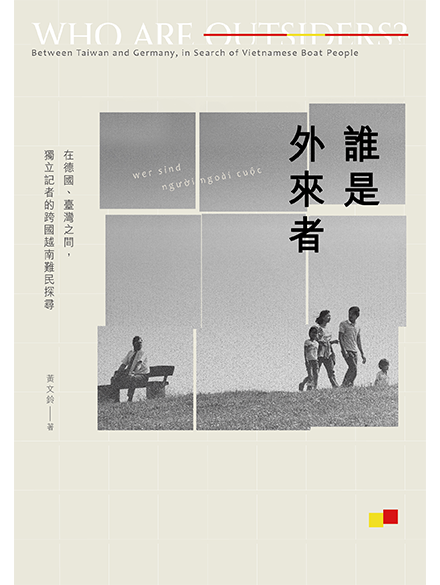South Vietnamese boat people in West Germany; North Vietnamese contract workers in East Germany: Two groups who have historically hated each other yet somehow ended up in the same place after German reunification. Spanning past to present, Who Are Outsiders offers a journalist’s compelling, in-depth look at the all-too-relevant topic of immigration.
Huang Wen-Ling, a Taiwanese journalist living in Germany, was motivated by her own identity as an “outsider” to embark on an in-depth investigation of Germany’s Vietnamese immigrant community. This group, often described by Germans as a “model minority”, inspired the author to find out what it takes for immigrants to successfully integrate into a new society, how the governments and local communities respond to them, as well as the potential benefits they bring to their host country. Her investigation revealed the far-from-simple profile of Germany’s Vietnamese immigrants.
Four decades before Germany began accepting Syrian refugees in 2015, it opened its doors to another group of “outsiders” – Vietnamese boat people. A comprehensive purge carried out by Vietnam’s new government after the Vietnam War caused many in southern Vietnam to flee. In the late 1970s, images of boat people drifting out to sea like candles in the wind shocked the world.
Divided into three sections, the book begins with West Germany, showing how it mobilized citizens to promote a humanitarian policy of accepting Vietnamese boat people. The next section covers roughly the same period in East Germany, where the government recruited contract workers from Vietnam, its socialist ally, in response to labor shortages created after young people fled to West Germany. These very different policies had a profound effect on the degree to which these two communities were able to integrate into society. Later, the author includes the example of how Taiwan’s government of that era took in Vietnamese-Chinese “expatriates” for ideological reasons, and not as refugees in the modern sense.
Author Huang Wen-Ling conducted interviews with more than fifty Vietnamese immigrants in Germany and Taiwan, hearing first-hand their gripping personal stories. With the objective perspective of an individual who has one foot in the ring, she helps readers understand Germany and Taiwan’s past and future interactions with refugees.
